|
7/2/2024 0 Comments Faithful Promises
While this was a cherished game for me, it was anything but that for the disciples and the women who followed Jesus. The Gospels shed light on their distress and deep sorrow as they witnessed His crucifixion. Specifically in Luke 24, we get a glimpse of Mary Magdalene, Joanna, and Mary walking to the tomb with spices in their hands. Their breath hitched as they found the tomb wide open - empty, with the stone rolled away. The appearance of the Angel of the Lord stirred their hearts, and they were reminded of Jesus’s words as he predicted his own fate. Luke 24:7 states, “The Son of Man must be delivered over to the hands of sinners, be crucified, and on the third day rise again.” These women rushed to inform the disciples who, still tormented by the gory scene of the crucifixion they'd witness just three days before, doubted the credibility of the empty tomb. It wasn’t until they met Jesus on the road to Emmaus, and recognized him during the breaking of bread that they truly grasped they were in the presence of the resurrected King. One could argue that their senses were so overwhelmed and consumed by the sight before them that they found it challenging to hold onto the words of Jesus. For the disciples, a certain degree of faith and certainty had been momentarily compromised. Have you received a promise from God concerning your family, future, or career, but find it challenging to maintain faith due to the circumstances before you? Dear friend, I am here to remind you to hold fast to your faith. Do not allow obstacles to hinder your belief in God's unwavering promises and faithfulness in your life. Trust God’s voice as he guides you faithfully on your journey. The enemy seeks to distract you with the visible obstacles, causing you to forget the abundant blessings God has in store for you. Therefore, consider this as your reminder to stand unwavering in His faithfulness, regardless of the challenges you face. Whenever the enemy attempts to steal that promise by diverting your focus to the obstacles in front of you, I pray that the Holy Spirit will help you redirect your vision. May your heart focus on the One who faithfully keeps His word. Remain steadfast in your faith! “God did this so that, by two unchangeable things in which it is impossible for God to lie, we who have fled to take hold of the hope set before us may be greatly encouraged.” Hebrews 6:18 (NIV)
0 Comments
7/2/2024 0 Comments Faith Over Facts
I mean, just reading it 2000+ years later seems like the perfect moment for a panic attack. And yet John 14:1 isn’t a suggestion, it is a command. “Do not let your heart be troubled. You believe in God, believe also in me” (emphasis mine). Did you catch that? DO NOT ALLOW IT. - Whoa! That’s strong. He knew that if they didn’t learn to take control over their hearts, those same hearts would fill with anxiety and run them right out of town. The trouble in their hearts would propel them far away from the miracle that was promised to them! (For more stories about promise-forsaking fear, checkout the entire book of Exodus). The message is so important to Jesus that He issues the command a second time in the same chapter. “Peace I leave with you; my peace I give you…Do not let your hearts be troubled and do not be afraid” (John 14:27). In essence, Jesus is telling them (and us), “I am leaving you with the gift of peace—the same peace I have while I endure the cross. Align your heart with this gift and use it to guard your heart.” In a culture where feelings and “personal truth” rule the roost, Jesus gives us the same command: “Don’t let your heart or circumstances carry you away.” Fill your heart with the same sustaining peace that helped Him endure the cross. I’ve heard it said, “You become what you behold.” Jesus spent significant time beholding the goodness and glory of The Father. When he experienced betrayal, pain and even death, he endured with a firm grasp on the character of His Father. In the weeks leading up to my son’s seizure - I had spent time looking into the face of Jesus. With an open heart and quiet adoration, I declared His goodness and truth daily. Turning my heart toward His, increased my awareness of the Prince of Peace. Later, when my heart was squeezed, His peace was what came to the surface. My son is now a healthy 12 year old (which takes a different kind of trust - and that’s a different devotional entirely). I still have to get bossy with my feelings (and facts) and tell them Jesus reigns! Friend, I encourage you to do the same. When trouble knocks on the door of your heart, ask Peace to answer for you. “‘Do not let your hearts be troubled. You believe in God; believe also in me.’” John 14:1 (NIV)
7/2/2024 0 Comments What Are We Waiting For?
It is now our second year in Alaska. One day, I looked at the blinds on our windows and wondered if I had missed any moose walking by because I didn’t have the blinds open. Even though they aren’t around a lot (we’d only seen them twice in our first year), I wondered if I’d missed my chance to see them. A few days later, I opened one of the blinds and was surprised to see a mama moose and her calf. The next day they were in our yard when I opened the blinds again. This morning, I had the blinds open before the sun fully rose, looking and hoping for one more glimpse of them. The Lord reminded me that I am to be similarly eager as I watch for His return. That’s the call we have as believers. Jesus came, died and rose again for our sins. He fulfilled prophecy after prophecy with His first coming, but there are even more prophecies about His second coming, the one we still await. These moose I love to watch eat our leaves or sit in the snow are merely a part of His great creation. But Jesus, our Savior, is coming back one day, and He has told us in His word to be ready. He says, “Therefore, keep watch because you do not know the day or hour” (Matt. 25:13). The ten virgins in Matthew 25 were all planning to meet the groom, but when he was delayed, they weren’t prepared and were left outside the wedding banquet once he came. May our senses never become dulled as we wait for our great King and Lord! Just as my boys must watch every time they are outside for incoming wildlife, we must watch for His return. We look for the signs. We stay alert to what is happening around us all while drawing nearer to His heart through prayer and time in His word. We live our life by the Spirit, obeying His commands and waiting expectantly for His return until He comes! “‘And if I go and prepare a place for you, I will come back and take you to be with me that you may also be with me where I am.’” John 14:3 (NIV)
7/2/2024 0 Comments That's Not Fair!
Prayer vigils were held and ultimately my friend died only eight months after her first symptom. Her four children and husband were left with a hole in their lives. Our initial diagnoses were not that different. Our treatments and struggles varied somewhat. But the end results do not feel fair to me at all. Why am I still here while my beautiful, vibrant friend is not? In Matthew 20:1-16, Jesus tells the story of some vineyard workers hired to help a landowner. Some workers began their labor early in the morning for the promise of one denarius. Throughout the day, the landowner added workers to the vineyard. Just before quitting time, more workers were added. At the end of the day, the pay was distributed with each worker receiving one denarius despite the number of hours they toiled in the field. The workers who put in a full day began to complain until the landowner reminded them that they had agreed to work for a denarius. They took the pay and their unfair feelings and left. The landowner reminded them his wealth was to distribute as he pleased. The first batch of workers could not see the landowner’s generosity and focused on their feelings instead. In a similar way, my feelings of survivor’s guilt showed how I felt it was unfair when my friend died and I lived. Have you ever experienced a situation where the outcome felt unfair to you? Maybe you were passed over for a job or a promotion in which you were obviously a more qualified candidate. Or perhaps someone else scored a win when you had put in more practice and effort towards the goal. Children are quick to verbalize their feelings about what they perceive to be unfair: “His piece of pie was bigger than mine!” But as adults, we are often more restrained and yet the feeling is sometimes right beneath the surface: “That’s not fair! I deserved it more.” Are you facing a scenario where you are tempted to grumble, complain, or declare how unfair it is to anyone who will listen? Remember the parable of the vineyard workers and know that God sees our efforts, knows our hearts, and will work everything out as He sees fit. We can trust God even when outcomes feel unfair. Keep your focus on trusting Him, doing what He asks you to do, and knowing that His ways are higher than ours even when they do not make sense to us. “‘As the heavens are higher than the earth, so are my ways higher than your ways and my thoughts than your thoughts.’” Isaiah 55:9 (NIV)
7/2/2024 0 Comments Conquering Life’s Excuses
However, Jesus warns us, in Luke 14, to not make excuses or be distracted from furthering His kingdom and our relationship with Him. He tells the Pharisees and disciples the parable of the master who invited all of his friends to his house for dinner. All of them made excuses for why they could not come. There will be times where we are exhausted and we need to go to Him for rest. Jesus does understand that our lives are tiring at times. However, Jesus warns that we must not put other things or excuses in front of Him in our lives. This includes our spouse, family, friends, housework, activities and our kids’ activities too. Luke 14:26 says “If anyone comes to me and does not hate father and mother, wife and children, brothers and sisters—yes, even their own life—such a person cannot be my disciple.” Jesus calls us to be his disciples. A disciple conquers distractions or excuses, and focuses on Christ. While we may not see the choices we make in our lives as choosing our agenda over God, our low prioritization of Him stems from our sinful, selfish nature. When we spend more time with the Lord, we can handle the stress of our daily lives easier because we are equipped to handle them. What small steps can you take this week to put Jesus first again in your life? Whether it is asking your husband to get up with the kids so you can read your Bible, or even heading to church when you are tired and then going to bed early the night after, I encourage you to make a plan of action. Find someone to keep you accountable in seeing your plan through. Dear God, thank you for the blessing of being able to come to You freely and without blame. Please help me to prioritize my relationship with You and to stop making excuses or filling my life with too many distractions. Lead me to think about eternal things and eternal goals. Remind me to always put You first in my life. Amen. “‘And whoever does not carry their cross and follow me cannot be my disciple.’” Luke 14:27 (NIV)
7/2/2024 0 Comments Truth in the Flesh
Turns out, I mostly knew a lot of information. But there, in the flesh— eating, praying, talking, dancing, laughing, dreaming together—I experienced my friend in her fullness. And she was different than I imagined. From their inception, most Jewish people had only known God through what was passed on to them through the words and experiences of a few select individuals. Priests, prophets, kings, and other religious leaders seemingly had front-row seats to God’s words and works while everyone else was in the nose-bleeds. By the time Jesus arrived on the scene, the cocky Pharisees were certain they had a clear picture of what the Messiah would be like. They were so confident in their assumptions, that they couldn’t recognize Him before their very eyes. In John 8, we read about one of their (many) tense encounters. Jesus has just made the bold and beautiful declaration that He is the Light of the World (John 8:12), and the Pharisees take offense, stating that anyone can’t just go around making those kinds of claims about himself to which Jesus basically replies, “I’m not just anyone.” The Pharisees don’t like this answer so they interrogate, asking, “Who is your Father?” Jesus breaks out a “mad burn” (as the kids would say) and tells them, “If you knew me, you would know my Father also” (John 8:19b). Wow. These were the leaders everyone looked to for spiritual guidance, yet Jesus reveals that while they thought they knew God, they really didn’t. The truth was they had a poor connection to God; they had a filtered picture; they had their own misinterpreted ideas of the meaning of scripture. Now, God stood right in front of them, and in His flesh-and-blood fullness, you could say God was a lot “taller” than they thought He was. Friends, here’s what I believe we can learn from their experience… When we go into our times of Bible study, we must leave one thing behind: our preconceived notions about who God is and what He is like. If we miss knowing God in truth, we flat-out miss knowing Him. Living in this fallen world in fallen bodies, our picture of God is often shaped and skewed by the poor connections of earthly relationships, the grungy filter of our feelings, and the hearsay of not-so-sound teaching. It is good for us to be aware of and guarded against this as we study God’s Word and let the truth be the truth— even when it is hard to swallow or different from what we thought! In reading the Gospels, we can be assured that Jesus’ life gives us the clearest “image of the invisible God” (Col 1:15). And the truth of who He is has the power to set us free if we will abide in it (John 8:31). Lord, help us to know you in spirit and in truth always! Amen. “The Son is the image of the invisible God, the firstborn over all creation.” Colossians 1:15 (NIV)
7/2/2024 0 Comments Are His Scraps Enough?
The encounter that follows has always made me a bit uncomfortable to read: “[Jesus] answered, “I was sent only to the lost sheep of Israel.” The woman came and knelt before him. “Lord, help me!” she said. He replied, “It is not right to take the children’s bread and toss it to the dogs.” “Yes it is, Lord,” she said. “Even the dogs eat the crumbs that fall from their master’s table.” (Matt. 15:24-27) Jesus’ words seem harsh; however, we know that He came for all who would believe in Him, not only Israel. Jesus seemed to be testing this Canaanite woman’s faith. And her response is beautiful, “Even the dogs eat the crumbs that fall from their master’s table” (Matt. 15:27). She showed a deep knowledge of two things. First, that Jesus was Lord. She called Him, “Master.” She recognized He was more than just a great prophet or a good man. She had faith in Him as Lord. Second, she realized that simply being able to glean from the scraps He left behind was enough. And for those scraps, we should be so thankful. Anything Jesus chooses to give to us is enough because knowing Jesus is enough. On the mountaintop, we can easily lean toward pride and self-preservation. In the deep valleys, we can lean in the opposite direction toward pity and doubt. But Jesus is enough. He is with us both on the mountain and in the valleys. He has a plan that He is working out for our good and His glory both when we are on the mountain and in the valley. Knowing Him is enough, and knowing His Word helps us remember that truth. When we are in the valleys, let us remember:
The woman’s faith was rewarded with the healing of her daughter (Matt. 15:28). I may or may not find complete healing. Paul did not. He had a thorn in the flesh that he lived with until the very end (2 Cor. 12:7). Regardless, I know the God of the universe who created me, chose me, knows me, and is always with me. For that, I can give thanks continually. When you find yourself in a valley or facing the unknown, cry out to the Lord; continue seeking Him through the Scripture, and ask for His scraps. He is faithful to those who draw near to Him! “Be joyful in hope, patient in affliction, faithful in prayer.” Romans 12:12 (NIV)
7/2/2024 0 Comments Frozen
When the demon-filled man encountered Him, he fell to his knees at Jesus’ feet. The demons begged Jesus to cast them into the pigs and Jesus obliged, resulting in the herd drowning in a nearby lake. After the townspeople saw what Jesus had done, they were afraid and asked Him to leave. Can you believe that? They didn’t ask Jesus, the miracle-worker in their very presence, to heal them also. They resisted Him, instead. When I freeze up in prayer, I am like the townspeople—refusing help from the one Person who can save me. Friend, can you relate? The enemy is scared of God’s power, and he wants to keep us from experiencing it. He uses his age-old tactic, fear, to keep our thoughts tangled, our stomach in knots, and our shame to paralyze us when we even think about being vulnerable (Does this remind you of Adam and Eve, hiding in the garden?). But just like the once demon-filled man, we can stand vulnerable, humble, ugly, and dirty before Him, and He will clean and free us. Fear keeps us frozen, but vulnerability with God brings freedom. Isn’t it amazing that God is God, yet He still invites us to be vulnerable with Him? When we know how much He loves us, it casts out all fear in His presence. Today, if you sit down to pray and freeze up like I do, ask Him to cast out the fear, to unfreeze and soften the hard spots of your heart. Sit still and be with Him, for there is no greater love. “There is no fear in love. But perfect love drives out fear, because fear has to do with punishment. The one who fears is not made perfect in love.” 1 John 4:18 (NIV)
7/2/2024 0 Comments The Cultivated Heart
In Matthew 13:3-23, we find the parable of the farmer and the seed. The farmer sowed seed and some fell on the path, some on rocky soil, some among thorns and some on good soil. Only the seed that fell on good soil produced a harvest. If soil is not conducive to growth, even good seeds will not grow. Good soil is soft and ready to cultivate life. In this parable, the seed is the Word of God and the soil is our hearts. The soil of our hearts determines a lot about our lives. I always wrestled with this parable. What is good soil practically and how do I cultivate it? Is it doing the right things? Are certain lives or seasons more conducive to having good soil than others? Can good soil be cultivated even in chaotic seasons? I learned the condition of our heart’s soil is affected by where we turn our attention. Good, soft soil has everything to do with the orientation of our hearts. Right in the middle of the ‘little years,’ where I often found it hard to find space for uninterrupted time with God and my ‘quiet times’ were often not all that quiet, I learned something profoundly beautiful: God is not just wanting to be with us in our set times with Him, but also with us in our lives as they are. No matter what moment we are in, we can learn to turn our attention towards Him. The more we begin to invite Him into the ordinary and mundane moments, the more we begin to notice Him around us. In the moments of overwhelm and fears, joys and triumphs, hopes and dreams, disappointments and loss, confusion and wondering, shame and failure, we will find God is listening. One way to develop deeper trust in God is to invite Him into the nooks and crannies of our days. Growing trust in God softens the hardened soil of our hearts. Soft soil is ready to receive from God, notice His movements and take Him at His Word. This trust gives us the confidence to actually do what He says, be vulnerable with Him and leads to true life change. God, who knows us fully and loves us deeply, has not left us on our own. As we learn to live our moments with Him, we will find a softness in our hearts growing and great harvest in our lives. Good, soft soil is something God cultivates in us as we learn to turn our attention towards Him in our ordinary lives no matter what season we are in. “Let the morning bring me word of your unfailing love, for I have put my trust in you. Show me the way I should go, for to you I entrust my life.” Psalm 143:8 (NIV)
7/2/2024 0 Comments Walking Through Storms
In this week's reading of the gospels we see that He is in every valley with us, fighting for us— He is not against those who put their trust in Him. As much as we wish we could automatically believe this truth, without fail, we know that is not the way any relationship works. Instead, as we seek Him and spend time with Him, we will build a relationship with Jesus. We come to know His character and the promises He has given us. We build trust and even if our outcome doesn’t look the way we wanted it to, we will know that God is still good. He loves us more than anything and when we truly understand His love, we will see that is what the gospel of Jesus is all about. As we grow in trust, our eyes begin to turn to Him in every situation. Jesus never told us things would be easy. He told us, “that in me you may have peace. In this world you will have trouble. But take heart! I have overcome the world” (John 16:33). He has experienced the same heartaches that we go through and as we build our lives on Him, the firm foundation that He has laid then we will be able to find peace and strength through our troubles in this fallen world. In the Sermon on the Mount, Jesus tells us: “As for everyone who comes to me and hears my words and puts them into practice, I will show you what they are like. They are like a man building a house, who dug down deep and laid the foundation on rock. When a flood came, the torrent struck that house but could not shake it, because it was well built. But the one who hears my words and does not put them into practice is like a man who built a house on the ground without a foundation. The moment the torrent struck that house, it collapsed and its destruction was complete.” (Luke 6: 47-49) When we rely on Jesus, our solid rock, He will keep us steady as we ride the waves of the storms life sends our way. So friend, no matter what you are going through right now, you are not alone. Jesus sees you and He wants you to come running into His loving arms. As you spend time in His Word today, allow His words to comfort you and guide you through whatever you are facing. “God is our refuge and strength, an ever-present help in trouble.” Psalm 46:1 (NIV)
7/2/2024 0 Comments Going Fishing
As Christians, we are all called to “fish” for the lost. As moms we have opportunities to fish from the beach and also to do some deep sea fishing. When our children are young, organizations such as MOPS and Rooted Moms help us to gently evangelize; do some fishing from the beach. We cast our bait, the Word of God, and sit and wait for God to reel in the catch when His timing is right. Sometimes we take home fish, but sometimes we come home empty handed. However, Isaiah 55 verse 11 tells us that God’s word never returns to Him empty, but accomplishes what He desires and achieves the purpose for which He sent it. I can say “Amen” to that, having seen how God has redeemed the lives of many prodigal children. Supporting missionaries, participating in activities like VBS, or providing resources and supporting God’s work around the world, fall into the deep sea fishing category. Rarely do we get to see the results of our involvement in these activities, but every so often, God graciously allows us to hear how lives have been impacted. One such glimpse was a report from a missionary that I support in Africa. As part of his work serving and evangelizing the local tribes, goats had been donated to poor families. This changed the attitudes many had towards the missionary and many of the villagers began to show up at the weekly church services. Several of the men accepted Christ and are now working alongside the missionary in spreading the Gospel. Another glimpse was watching via satellite TV, the crowd of people who came forward to commit their lives to Christ in an evangelistic outreach that the Church I attend conducted in Egypt this past fall. What a previlege to participate in this “deep sea fishing” for the souls of men! Whether fishing from the beach or deep sea fishing, God expects us to be full time “fishers of men,” evangelizing the lost. Christians are called to seek the lost. This is a full-time commitment, our first priority. If you and I have not been fishing recently, we are not functioning as Jesus intends us to function. Therefore, let us toss in our line or cast our net and invite the lost to become part of God’s family. “‘Come, follow me,’ Jesus said, ‘and I will send you out to fish for people.’” Matthew 4:19 (NIV)
7/2/2024 0 Comments His Plans Never Fail
When an angel of the Lord named Gabriel appeared to Mary and told her she would become pregnant and give birth to a son, when she wasn’t even married, her reaction was one of logistical confusion, not disbelief. Gabriel also relayed to Mary the news that her cousin, Elizabeth, who had struggled with infertility and was now older in age, was with child. He told Mary, “For nothing will be impossible with God” (Luke 1:37 NASB). Mary chose to put her complete trust in God. “I am the Lord’s servant,” Mary answered. “May your word to me be fulfilled” (Luke 1:38). She had faith that when she gave God her trust that nothing would be impossible, no matter the struggles she faced; there would be joy and victory in the end. It’s never easy to see the plans we’re excited for change completely, especially when those changes bring heartache. We aren’t promised that we won’t feel pain or sadness, but we’re able to cling to joy and peace during those times knowing that God has a perfect plan for us— even if it’s something we never believed possible. Elizabeth loved God with all her heart, even when she believed that He wouldn’t bless her with the baby she longed for (Luke 1). Joseph was initially concerned about this situation and planned to end his engagement to Mary; he instead followed the commands of the angels of God and trusted the Lord’s plans (Matthew 1). Mary knew her future held heartache and difficulties as the mother of Jesus. But Elizabeth, Joseph and Mary trusted and listened. When we put our full trust in our relationship with our heavenly Father, we’re able to fully experience how His plans are always greater than our own. At the end of Luke 1, Elizabeth rejoiced and we can rejoice along with her knowing and trusting that, “Blessed is she who has believed that the Lord would fulfill his promises to her!” (Luke 1:45). Spoiler alert— I’m not a teacher. I changed my major three times. I didn’t marry that high school boyfriend, but I did marry my college sweetheart. I just had our third baby girl at the age of 34. I live an hour and a half from my hometown. I’m blessed beyond measure and this life God has built for me is greater than I could have ever imagined. Our plans may fail and change, but His never do. Before making a plan all on your own, I encourage you to seek the Lord and prayerfully ask Him to guide you into the right direction. Seek him daily, with everything and trust that whatever His plans may be, that they are far better than you could ever imagine. “‘For I know the plans I have for you,’ declares the Lord, ‘plans to prosper you and not harm you, plans to give you a hope and future.’” Jeremiah 29:11 (NIV)
12/4/2023 1 Comment Hope for Tomorrow
Before I knew it, I was zoomed in on my phone, taking pictures worthy of Instagram of the brilliant sunset on the far bank of the river. At that moment, I felt God speaking and I looked around. Slowly, I zoomed out. I started snapping pictures with our less than desirable surroundings on this side of the river in the foreground: rusty industrial buildings, worn pieces of dock, drainage pipes, ice smashing into the rocky shoreline. “The brokenness of this world doesn’t compare to the glory that is coming; the brokenness of this world doesn’t compare to the glory that is coming...” played over and over in my heart, as I sobbed, shivering with the glory of the Lord on full display just across the river, while my Shepherd was guiding me and leading me through the valley of the shadow of death on these banks. Through every present tense line of Psalm 23, I can testify to His faithfulness. The first five and a half verses, give us hope for today that we have an ever-present Shepherd, guiding us, His sheep, through the valleys of this life, restoring us with green pastures and still waters, comforting us, anointing us with oil and overflowing our cups all of the days of our lives. And then King David pens the words, “and I will dwell in the house of the Lord forever” (Psalm 23:6b). In that one precious, yet simple verse, David shifts from our present help to the future and what is to come. Every present-tense sorrow, evil, danger, sickness, shattered dream, broken relationship, or disappointment that you may be facing today, must bow at that line of Scripture. It’s the zoomed in photograph, the glory that outshines it all; the promise of eternity in the presence of our Savior. Our present help points us to the hope we hold for tomorrow. Our shepherd, He is leading us home, to His house, where the buildings aren’t rusty and the docks are made whole. Where He will wipe away every tear and we, Hudson, and you and I, we will dwell in the house of the Lord forever. Amen and Amen. “And I will dwell in the house of the Lord forever.” Psalm 23:6b (NIV)
12/4/2023 1 Comment Followed by Goodness
A couple of years ago my husband and I tried everything we could to move away from the Atlanta area and closer to our family in North Carolina. We knew God had led us to Georgia for a reason but we were hoping that season was over. I prayed, “God, close the doors that need to be closed, and open the doors that need to be opened.” He heard my prayer, but it looked different than I thought it would. It looked like every door we tried prying open on our own, he shut. It felt like the path God was leading us down was a dark alley and it surely did not feel good. However, now being on the other side looking back, I can look back and see the benefit and spiritual growth through the journey. We decided to quit trying to move and instead seek God where we were. If we would have moved when we tried to, we would have missed the opportunity to get plugged in with a local church here and embark on a journey that has grown and strengthened our spiritual life immensely. Now looking back I can see the compassion in God’s closed doors. Trials can make us more aware of God's goodness and mercy leading to spiritual growth rather than bitterness. God has used these past couple of years to draw my husband and I nearer to Him, teaching us more about the relationship He desires with us. For me, God has graciously been revealing more and more of my true identity in Him. That is where I see His goodness and mercy following me. Because without that truth, my world would have been rocked last year when we watched our son struggle in the hospital three separate times. For me His goodness looked like the ability to have peace in that storm. I was secure in His promises because of the intentional relationship He led me to build with Him. With my natural tendencies to fear, worry, and ask “why,” it is not always simple to assume that God really knows what He is doing with me. There are times I am tempted to panic and bolt. But despite this attitude, I am so glad He does not give up. His goodness and mercy are new to me everyday. “Surely goodness and mercy shall follow me all the days of my life” Psalm 23:6a
12/4/2023 1 Comment My Cup Overflows
In addressing the Lord as “my Shepherd,” David was admitting that he was like a sheep, and was in need of a caretaker. His Shepherd knew that he needed physical rest, healing, relaxation and rejuvenation. He was confident that he would never want for anything. Psalm 23:5b says, “You anoint my head with oil; my cup overflows.” These words tell of one whose every physical need had been satisfied and the abundant blessings he had experienced. The Shepherd is not stingy with His provisions, but lavishes His sheep with His love, grace, and mercy. Philippians 4:6 reminds us not to be anxious about anything, but to present all our prayers and petitions to God. The Lord takes care of His children, protecting them and fulfilling their physical needs. He provides healing, rest, food, and shelter; His sheep feel physically refreshed, renewed and secure. Sadly, even though I have experienced His blessings, I am sometimes too busy or forgetful to call upon the Lord my Shepherd, or I only turn to Him in times of intense sorrow or pain. I forget that when He hung on the cross of Calvary, Jesus paid the price for all my sin, sicknesses and diseases. His sacrifice covered it all. His love, grace and mercy never runs dry, and therefore, my cup overflows. From the simple to the extravagant, the Lord provides for His children. Aren’t you so thankful that the Lord is our Shepherd? “You anoint my head with oil; my cup overflows.” Psalm 23:5b
12/4/2023 1 Comment The Peace of His Presence
David had been pursued through the valley, and God had set a table before him. Surrounded by his enemies, seated at the table God prepared for him, David is at peace. David, the shepherd king, points us to Jesus. In John 10:14, Jesus refers to himself as the Good Shepherd. One who will lay down his life for his sheep. At the end of Jesus' ministry, we read about another table; a table prepared for His disciples. As Jesus washed his disciples feet, as he lifted the cup of salvation, as He broke bread, He sat in the presence of his enemy. Jesus knew. Yet he still sat at the table. He still washed the feet of Judas. In the presence of his enemies, He was at peace. As we sit at the table prepared for us, we too have an enemy bent on division and destruction. The good news, friends, is that Jesus not only prepares a table for us, He also gives us the gift of His very presence. In His presence there is protection and peace, even as we are surrounded. The table is set, friends. All we have to do is pull up a chair. There, every provision is met, and we can commune with our Shepherd Savior. “You prepare a table before me in the presence of my enemies.” Psalm 23:5a
12/4/2023 1 Comment Safe With the Shepherd
The clock ticked on... My two younger girls noticed their oldest sister was missing and started to panic. Boldness rose as forcefully as The Shepherd’s rod and peace swelled in my heart. We will not be afraid. Jesus knows exactly where O is and He will return her to us safely. After several minutes (which seemed like hours) I saw a gentleman walking toward us, my daughter beside him. My eyes filled with tears and gratitude — as always, the Good Shepherd went after my little lamb and safely returned her. His rod and staff were a comfort to me. In their book, The Way of the Shepherd, Dr. Kevin Leman and Bill Pentak explain the uses of both the rod and the staff: The staff is a long tool with a hook on the end. It was used to redirect and rescue the sheep. With their heads down nibbling grass— like my sweet girl searching for hidden treasures in the sand— they aren’t always aware of their surroundings which means they lose track of the shepherd. The shepherd extends his reach to rescue the wandering ones by looping the staff around their neck and gently bringing them back. The rod, on the other hand, is similar to a club and is used as a weapon. It was small enough to “sail” through the air aimed at a predator who threatened the flock. Always watching, always vigilant, the shepherd protects the sheep from dangers seen and unseen. For a while, after the shepherd finds the lost sheep, he will use his staff to gently press the side of the sheep to remind them of his presence, comfort and to redirect them if they start to stray. For the rest of the day, I kept my eye on my sweet girl. She needed the assurance that mama was nearby and that I had my eye on her, even when she didn’t have her eye on me. Years ago, when I felt ill-equipped and lost in solo- motherhood, Holy Spirit led me to this verse: “He tends his flock like a shepherd: He gathers the lambs in his arms and carries them close to his heart; he gently leads those that have young” (Isa. 40:11, emphasis mine). I realized I am always safe with the Shepherd. Mama, you may feel lost. Your head may be down in the day-to-day tasks and you may feel distracted. Fear may prowl like a lion just beyond the boundary line. You may have a lamb that seems out of your reach. Rest assured, They are never out of the Shepherd’s reach and neither are you! The Shepherd has you and your lambs in His sight and He is leading you. Today, ask Him to show you how His rod protects you. Allow him to draw you close with His staff and to bring you comfort. “Your rod and your staff, they comfort me.” Psalm 23:4b
12/4/2023 1 Comment Rocky Roads and Guiding Rods
It was at that very moment that I felt grateful to have my husband by my side, not just as a guide but also as a constant source of encouragement and support in spite of my fear. As we reflect Psalm 23:4 today, let's imagine how reassuring it is to have God right there by our side, leading and guiding us with a love that's even stronger than our closest loved ones. In previous passages of Psalm 23, David describes the Lord as a shepherd who leads us beside still waters and makes us lie down in green pastures. However, in verse 4, we see that God is not only with us in peaceful places but also in the darkest times. Personally, I have questioned how David finds comfort in God's rod and staff during such dark times and why these specific terms are used in relation to the word comfort. Interestingly, the rod and staff were fundamental tools used by shepherds to care for their sheep. Considering that sheep are not known for their discernment, the shepherd would employ the rod as a means of safeguarding the flock from potential predators. On the contrary, the staff served as a guiding instrument, gently directing the sheep along their journey. In a similar vein, this is precisely what the Lord does for us. As believers, He is not only present in the peaceful moments of our lives but also in our darkest seasons. He diligently guides us, defends us, and provides us comfort during these challenging times. However, it is imperative that we place our trust in Him to see the fruit of His labor. I could have easily given in to my fears as I hiked up the mountain with my husband, missing out on the breathtaking view that awaited us at the top. I could have ignored his advice and ventured alone, disregarding his extensive expertise. But instead, I made the choice to place my trust in him. Likewise, this is how it is with God. In our darkest seasons, we have a choice. We can stubbornly go our own way, risking harm and confusion, or we can wholeheartedly trust that God's rod and staff are there to safely guide us through life's rocky terrain. “Even though I walk through the darkest valley, I will fear no evil, for you are with me...” Psalm 23:4a (NIV)
12/4/2023 1 Comment For His Name's Sake
I was generally a rule follower. I wanted all the awards: for grades, for attendance, for being “good.” I didn’t necessarily want to be in the spotlight, but achieving was high on my list of priorities, and I loved getting the credit for everything I did. The “right paths” I was walking or the good that He was enabling me to do were not accomplishing what they should have. It was all about me. When I became a stay-at-home mom, I quickly realized that there wasn’t much glory to be had. My success no longer felt measurable. Most of what I did each day was unseen. At some point, I eventually came to the conclusion, especially having more understanding of the Scriptures by then, that the Lord must be being glorified by all the work I was doing as a mom because I was definitely not getting the glory. THAT is how it should be! I remember the first time God highlighted the rest of the section my son was reading to me. Jesus continues, “Then your Father, who sees what is done in secret, will reward you (Matt. 6:4).” I have been walking with Jesus for twenty-one years now, and I still sometimes feel like my son, asking the Lord simple questions such as, “What does this mean?” Our world calls us to put our lives on display. If we do something noteworthy, we can get the glory with a simple post on social media. The likes roll in, and the glory is ours. But we aren’t to do the right things for our glory. Walking with God is interesting and counter- cultural. We trade the glory of man in the now for the reward He has for us later. Yet, our walking in the right paths should bring Him glory. Our Shepherd guides us along the right paths for His glory, not ours. When our light shines before others, they will see our good deeds and glorify our Father in heaven (Matt 5:16). This may seem contradictory, but it isn’t. It is all about a quiet walk along the paths He leads, which naturally draws attention to the Father. We trade our glory for His, with a hope of the reward to come. I don’t know about you, but I am sure that must be worth the wait. “He guides me along the right paths for His name’s sake.” Psalm 23:3b (NIV)
12/4/2023 2 Comments Soul Restoration
God shows us what needs to be stripped away— what isn’t meant to be there. Though we can feel raw in the process, God gives us courage and grace to keep following Him on this path to restoration. We can hold onto the promise that, “After you have suffered for a little while, the God of all grace [who imparts His blessing and favor], who called you to His own eternal glory in Christ, will Himself complete, confirm, strengthen, and establish you [making you what you ought to be]” (1 Pet. 5:10 AMP). God reveals His perfect plans and His perfect love for His children over and over in His Word. The woman caught in adultery was brought before Jesus with condemnation and a death sentence, yet Jesus freed her from condemnation and offered an invitation to leave her life of sin (John 8:10-11). Encountering His love— a love that is so compelling, so real, and so safe— has a way of bringing humility to our wayward hearts so that God can begin the repairs of our soul. God sent Jesus and launched His plan to restore our identity as sons and daughters, connected to His heart and ways. It’s almost as if our soul sometimes has to catch up with the Good News. The Gospel is the invitation into the restoration process that acknowledges that “you were once far away from God. You were his enemies, separated from him by your evil thoughts and actions. Yet now he has reconciled you to himself through the death of Christ in his physical body. As a result, he has brought you into his own presence, and you are holy and blameless as you stand before him without a single fault. But you must continue to believe this truth and stand firmly in it. Don’t drift away from the assurance you received when you heard the Good News...” (Col. 1:21-23 NLT). Jesus did all the work and made a way for us to walk in fellowship with the Trinity, but we have to accept the gift and apply it to our lives. He wants to hand us treasure but we have to let go of the junk we hold onto. God never designed us to live apart from Him, riddled with guilt and shame. The Good Shepherd shepherds us through the entire process of restoration. Our part is to allow God to love us and teach us His ways, believing and remembering the Good News of the Gospel and the victory Christ secured for us. It is finished and He is seated in heaven, awaiting the appointed time for full restoration of all things (Acts 3:21). That day is coming friends so let’s take God at His word. Follow Him through the restoration process and take heart - He’s with us all the way. “He restores my soul...” Psalms 23:3a (ESV)
12/4/2023 2 Comments Resting in Jesus
Finally, my mother stepped in on our behalf and stayed up with our daughter while my husband and I slept through the night. I woke up the next day refreshed. It was like I was a new person. David writes in Psalm 23:2: “He makes me lie down in green pastures, He leads me beside quiet waters.” Just as my mother could tell how desperately my husband and I needed rest, Jesus sees our stressful, busy lives and yearns to give us rest. How often do we overextend ourselves, especially as moms? Our days are full of things such as kids’ sports teams, helping with homework, house chores, work, and taking care of our children. We hardly have a moment for ourselves most of the time. Resting in God is not just a luxury for when life gets busy and stressful, but a necessity that can renew our weary soul. Psalm 23:2 shows Jesus leading us to still waters. While my mom initially provided us with the rest we needed, my husband and I eventually balanced taking care of our newborn by alternating the night shift. While Jesus does provide rest for us, we have to be willing to not only accept the rest but to form a habit of taking the time to rest when we need it. Jesus will never force us to rest but instead will gently nudge us to pause and rest. There is rest to be found in the stolen minutes of our lives; a quiet prayer, our morning cup of coffee, or even in the car on the way to our next event. We can find comfort and peace only He can provide when we take the time to rest in Him. “He makes me lie down in green pastures, he leads me beside quiet waters.” Psalm 23:2
12/4/2023 1 Comment Building A Relationship with God
A shepherd who has ownership over his sheep would die for them, because the sheep were bought with a price. Therefore, they mean far more to him than that of a hired hand (John 10:4, 11-14). Hearing these words from Jesus amplifies David’s statement even more with rich meaning and shows His great love for us, His sheep. Our Good Shepherd wants us to live our lives in abundance but we have to stop trying to do it all on our own. We have to admit that our way is far more difficult and that He knows what is best for us. As we spend time with Him, we will learn His voice and follow. Throughout David’s life as a shepherd he spent a lot of time alone, that time was spent building resilience by defending his sheep to later becoming the anointed King (1 Sam. 16:11-13). Throughout his life, he continued to follow God’s voice allowing God to guide David safely through every trial. As we look to scripture, we see David show such intimacy by using the word “my,” implying that he has a personal relationship with God. He believes that he lacks nothing because of the way God has always showed up for him. David knew that with God he did not have to worry about his life, where to go or how his needs would be met. When we spend time with our Shepherd in prayer and in His Word, we will come to recognize His voice, too. Just like a sheep with his shepherd. It wasn’t long ago that I was lost and wondering. Looking to things or people to fill a void that only Jesus could fill. Once I started praying with more intention, attending a small group and reading God’s Word regularly then I started to see a change. It was not immediate; just like any new relationship, it took time, consistency and trust. By building my relationship with Him, and keeping my eyes fixed on the things unseen, God has always met me in my time of need because He has never left me alone. No matter what danger comes my way, or how far I wonder. He is there to keep me safe and call me back into His loving arms. And friend, He wants to do the same for you! “The Lord is my shepherd, I lack nothing.” Psalm 23:1 (NIV)
9/21/2023 0 Comments The Light of the Son
I think we often focus on the infant form or crucified forms of Jesus, and we do not always consider what He looks like now or how He will be when we meet face-to-face. John gives a vivid image of our resurrected Messiah, including that His face was shining like the sun at full strength (Rev. 1:16). Revelation 22:4-5 says that we will see His face and people will no longer need the light of a lamp or the light of the sun because the Lord God will give us light. This echoes Isaiah’s words that the Lord (YHWH) will be our everlasting light, and we will no longer need the sun by day or the moon by night (Isa. 60:19). The glory of God will give our new dwelling place its light, and the Lamb will be our lamp (Rev. 21:23). Our eternal dwelling place will need no other light than that of the Lord. When I consider these simple truths, it almost takes my breath away. I cannot look at the sun (or even its reflection in the snow surrounding me now), but I will one day be able to look at the face of the one whose face shines like the sun at full strength. I can hardly imagine. Sit with this for a moment. Listen for His voice and what He is calling to your heart. We will one day leave this land we know and head to a new place with Him in all His glory. Unlike the new things I had to learn to protect our family, our new home will be perfect…our new climate heavenly. We may not see Him in all His glory now, but He will reveal more and more as we seek Him for all He is. We find this promise in the psalms: “They will receive blessing from the LORD and vindication from God their Savior. Such is the generation of those who seek Him, who seek Your face, God of Jacob” (Ps. 24:5-6). So, while we await a time where we will literally see Him face-to-face, let us heed the instruction in Psalm 105 to give thanks, call upon Him, sing His praise, rejoice, tell of His wonders and deeds, and seek His face always (Ps. 105:1-4). May He shine His face upon us as we journey with Him in our today and long for the time to come where we will see His face fully, in all of its radiance. “My heart says of You, ‘Seek His face.’ Your face, LORD, I will seek.” Psalm 27:8 (NIV)
9/21/2023 0 Comments Intimate Fellowship with God
In 1 John 1:5-6, the apostle John writes to Christian believers, “...God is Light; in him there is no darkness at all. If we claim to have fellowship with him and yet walk in the darkness, we lie and do not live out the truth.” John is telling the believers that if they want to enjoy a relationship with God they must be willing to allow His light to expose their sin, so they can ask for forgiveness. This passage was prompting me to look at how I dealt with sin in my life. It was reminding me that sin disrupts my relationship with God, because light and darkness cannot coexist. So how do I respond? First John 1:9 says, “If we confess our sins, he is faithful and just and will forgive us our sins and purify us from all unrighteousness.” In order to have an intimate relationship with God, I have to allow His light to show me the sin in my life so I can confess it and allow Him to guide my path. John continues to speak to believers about their fellowship with God. First John 4:7-8 says, “Dear friends, let us love one another, for love comes from God. Everyone who loves has been born of God and knows God. Whoever does not love does not know God, because God is love.” Because God is love, a relationship with Him means that love must be evident in our lives; in words and in deeds. Do I love my fellow believers and my neighbors? Is my love visible, sacrificial, and unconditional? Thinking about my behavior when the neighbor parks too close to my driveway, or when someone swipes the parking spot I was headed for, or when the family with six children under twelve sits in front of me in church, I feel convicted. Love is from God. If I am not demonstrating love, my fellowship with God is impacted. Intimacy with God means walking in His light and sharing His love. Maybe like me, you feel God using this passage to prompt you to examine your walk with Him? He is revealing truths that will lead to a more intimate relationship with Him. He wishes to shine His light into those dark areas that we try to keep hidden and His love to guide us to those with whom we need to share love. May we always act on the prompting the Holy Spirit places on our hearts. “Follow God’s example, therefore, as dearly loved children and walk in the way of love, just as Christ loved us and gave himself up for us as a fragrant offering and sacrifice to God.” Ephesians 5:1-2 (NIV)
God didn’t call us to control our child’s every decision. Our God-given parenting mission is to make disciples who follow Him. How, then, do we parent our children as they grow to live God-honoring lives while also honoring their God-given differences? In 1 Peter, the apostle writes to the elders of the early church. We, as moms, are elders too! God has entrusted us with our own little churches or— our own little flocks. Peter’s exhortation is a word of wisdom to all of us. He says, “…shepherd the flock of God that is among you, exercising oversight, not under compulsion, but willingly, as God would have you; not for shameful gain, but eagerly; not domineering over those in your charge, but being examples to the flock” (1 Pe. 5: 2-3 ESV, emphasis mine). In short, we can shepherd well by: 1. Exercising oversight (not control). This is what God does with us. He gives us guidelines to live within, but also gives us freedom to make our own decisions. 2. Loving our children more than we love ourselves. Nothing reveals how selfish we are, as humans, faster than becoming a parent. Allowing our children to make decisions often means risking our own reputation, happiness, and comfort. When we love them, we care more for their long-term growth than our own short-term gain. 3. Being living examples. One of my favorite sayings is “what they see is what they’ll be.” How do you follow the Father? Do you seek His will for every area of your life? Are you enslaved to fear of what others may think or free to “keep in step with the Spirit?” (Gal. 5:25) Peter’s following words provide two powerful keys to living this out: “Humble yourselves, therefore, under the mighty hand of God so that at the proper time he may exalt you, casting all your anxieties on him, because he cares for you” (1 Peter 5:6-7 ESV, emphasis mine). First, we must be humble. We must admit that mother doesn’t always know best, but God always does and that we are incapable of shepherding well without the grace and wisdom He provides. Second, we must cast all our anxieties on Him. Do you know what is at the root of control? Fear. What potential outcome are you worried about? Release it into the Father’s hands. He loves our children even more than we do, and is holding their life in His capable hands. Spend a few minutes admitting any areas where you have crossed over into control. Identify the fear at the root and give it over to God. Thank God for your child’s unique design and ask Him for increased grace to shepherd them well. “He tends his flock like a shepherd; He gathers the lambs in his arms and carries them close to his heart; he gently leads those that have young.” Isaiah 40:11 (NIV)
|
Devotionals by AuthorAll Abby McDonald Alexa Gearhart Angi Morrison Anna Bearden Anne Say Audra Powers Breanna Faith Spearman Brenna Kurz Brittany Marlow Caroline Hultgren Courtney Filippin Dana Schaefer Danielle Biddy Debbie Burns Heather Kenny Jannetta Cox Jessica Parker Jess Ridgeway Joan Lavori Katelyn Wilson Katie Gibson Kelly Orlowski Kerri Barfield Keryn Stokes Kristen Williamson Laura Pendley Lindsay McNeely Lonette Baity Martha Rudolph Nancy Ehlinger Renee Robinson Saretta Wells Tara McGill Taylor Watkins Tierney Nashleanas Wendy Gerdes |
Search by typing & pressing enter


























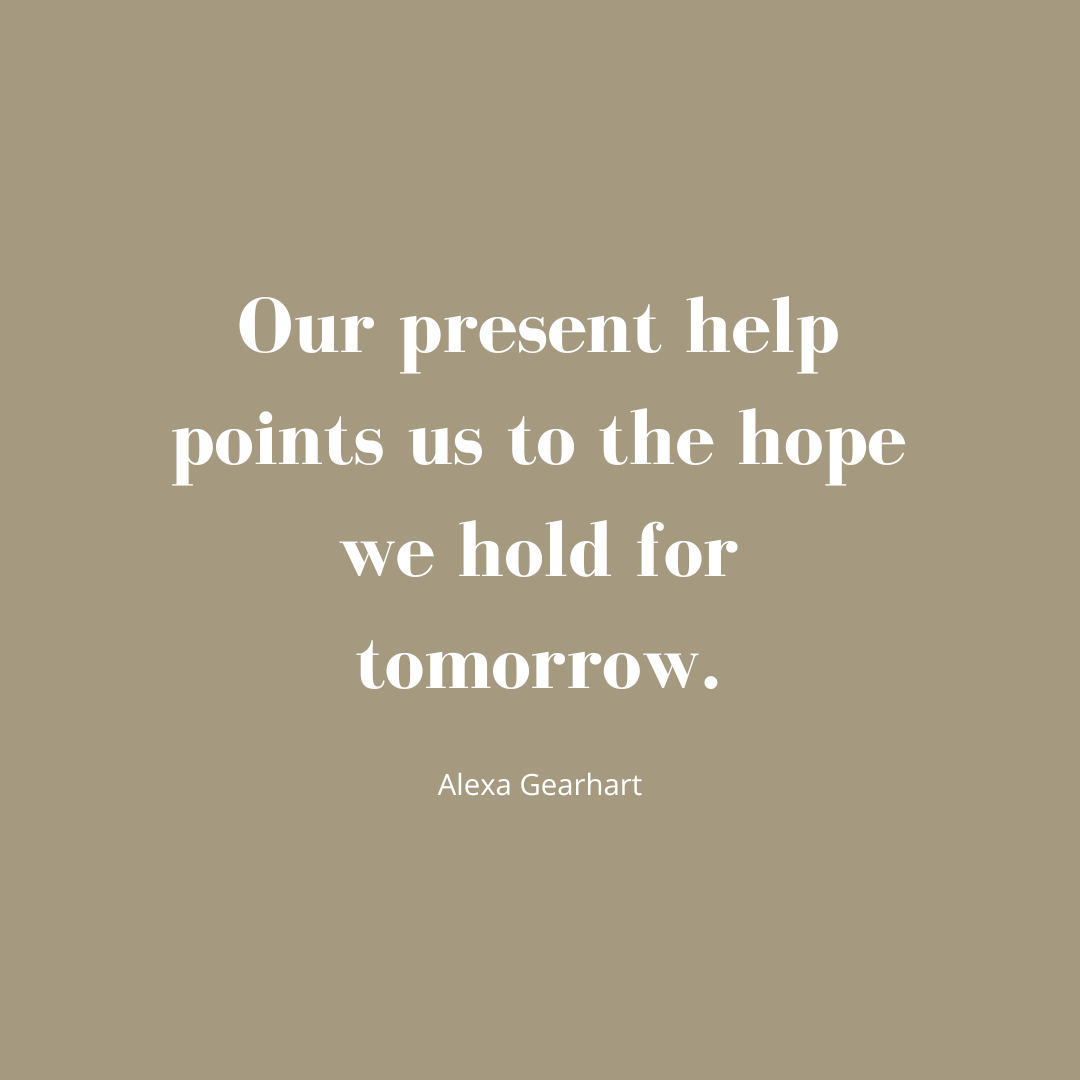






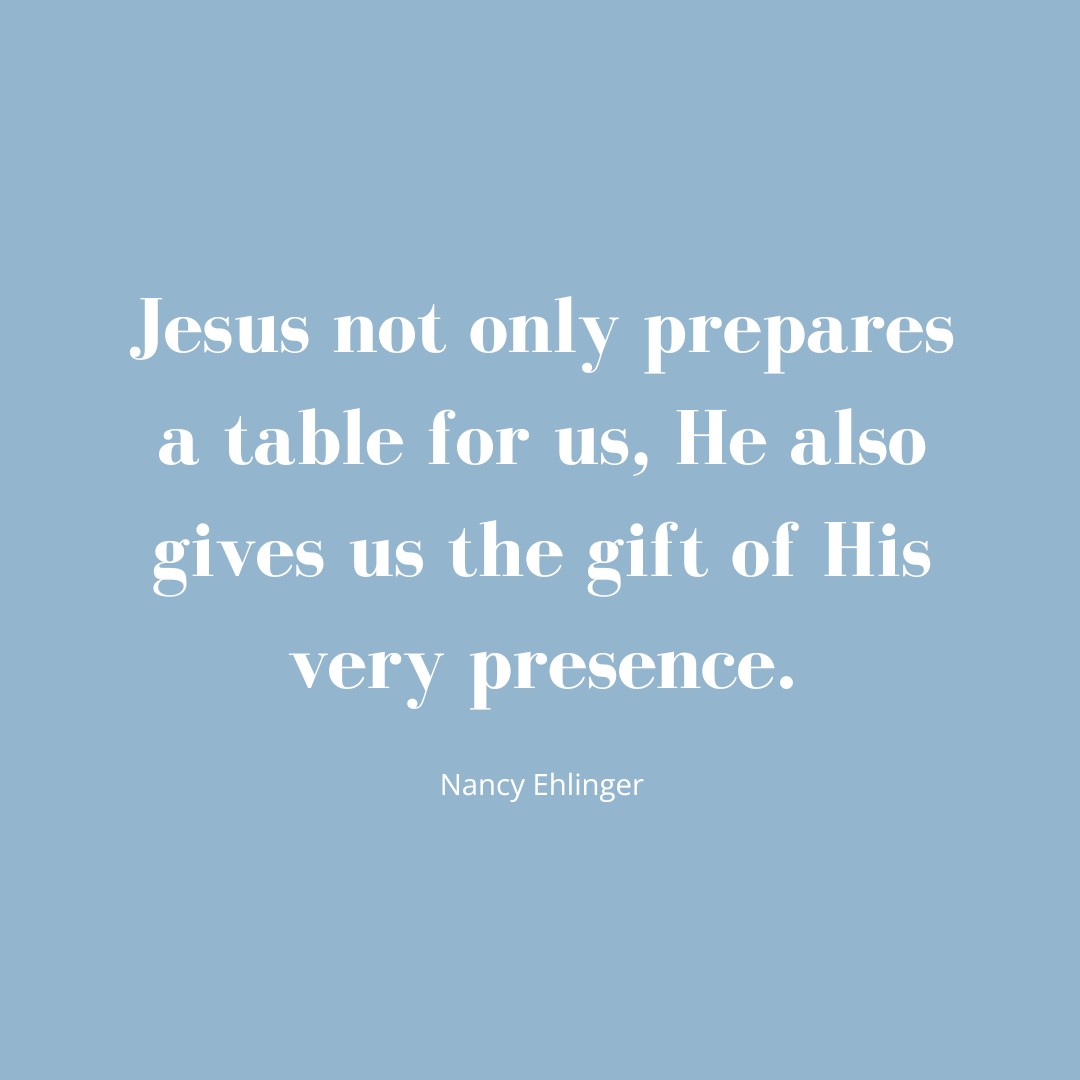

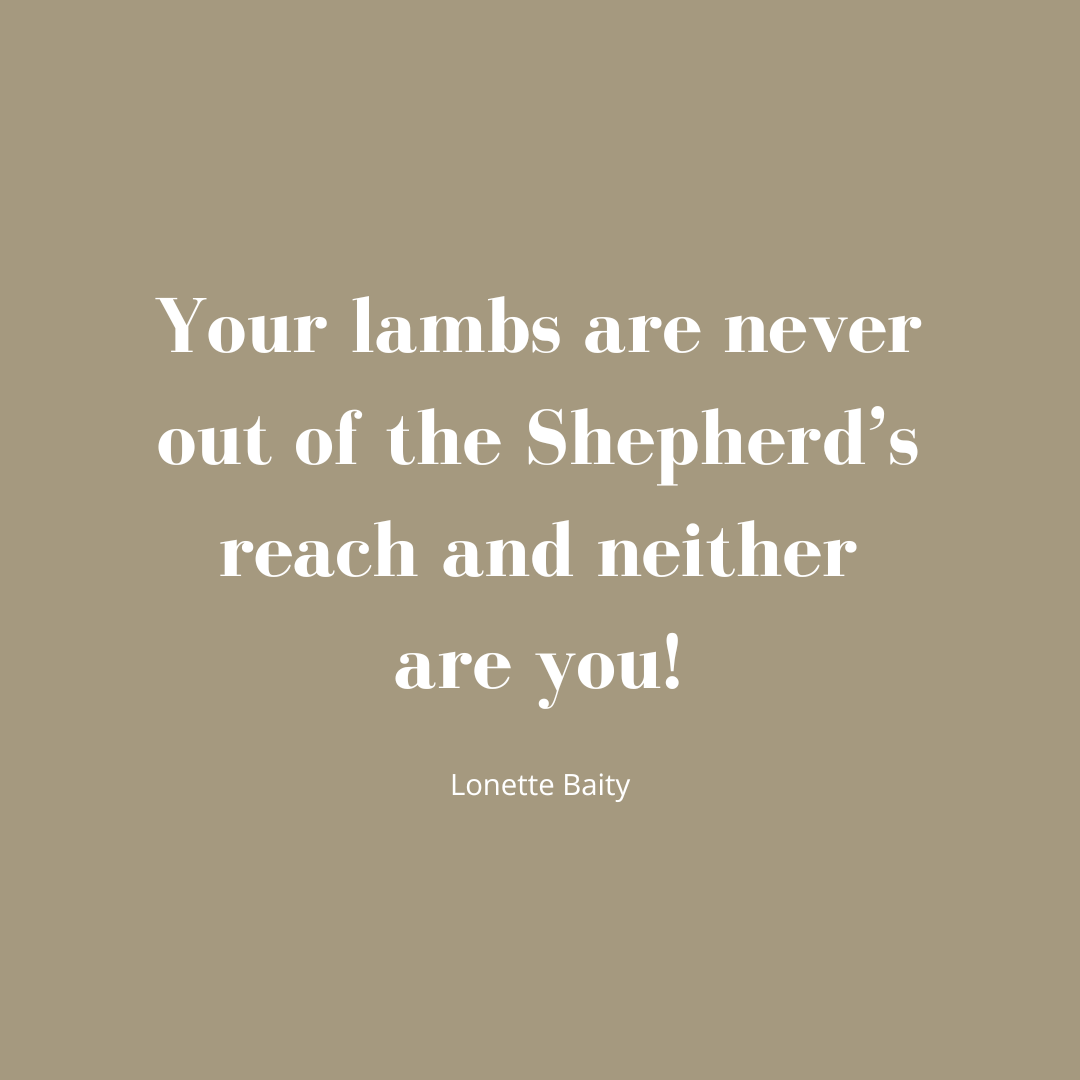

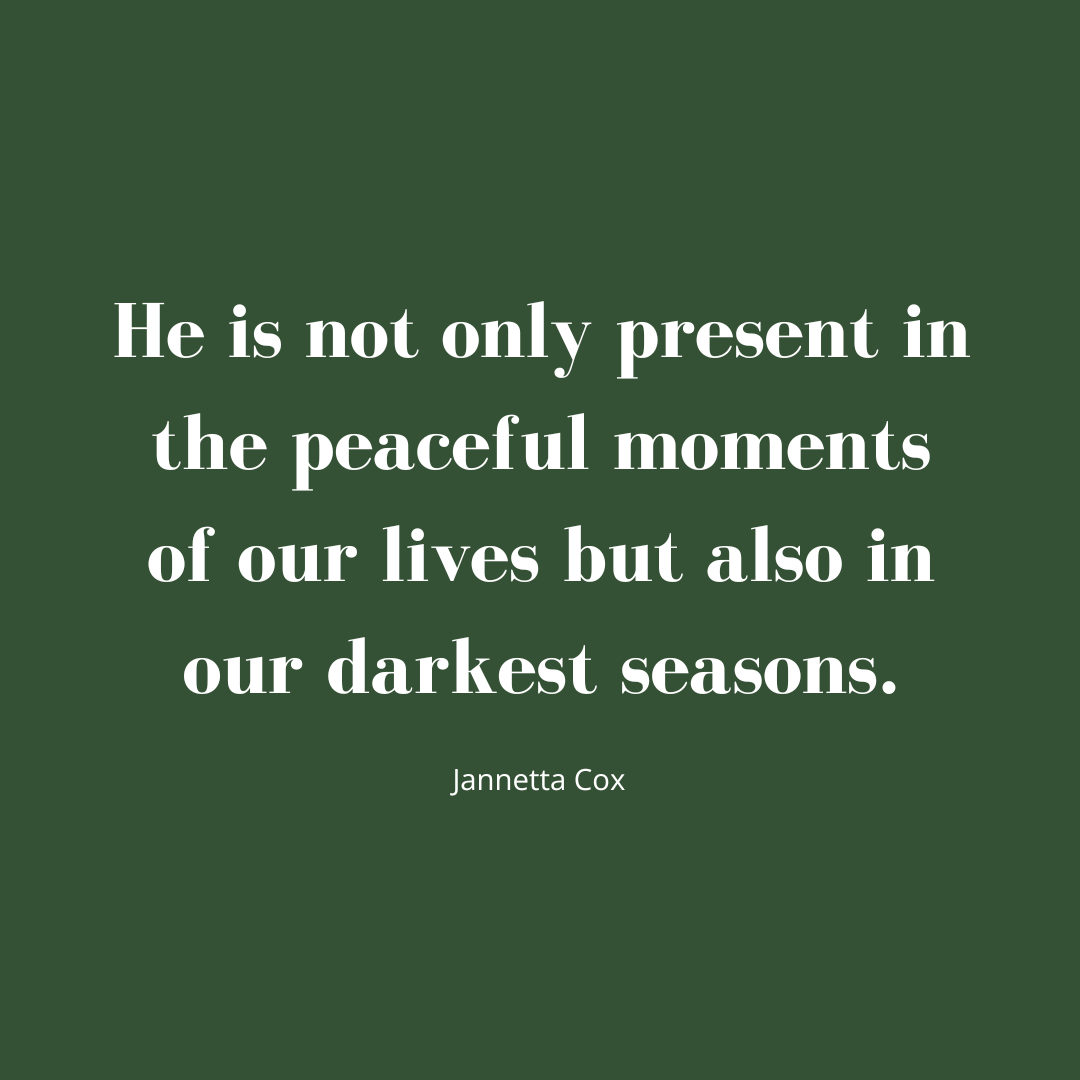



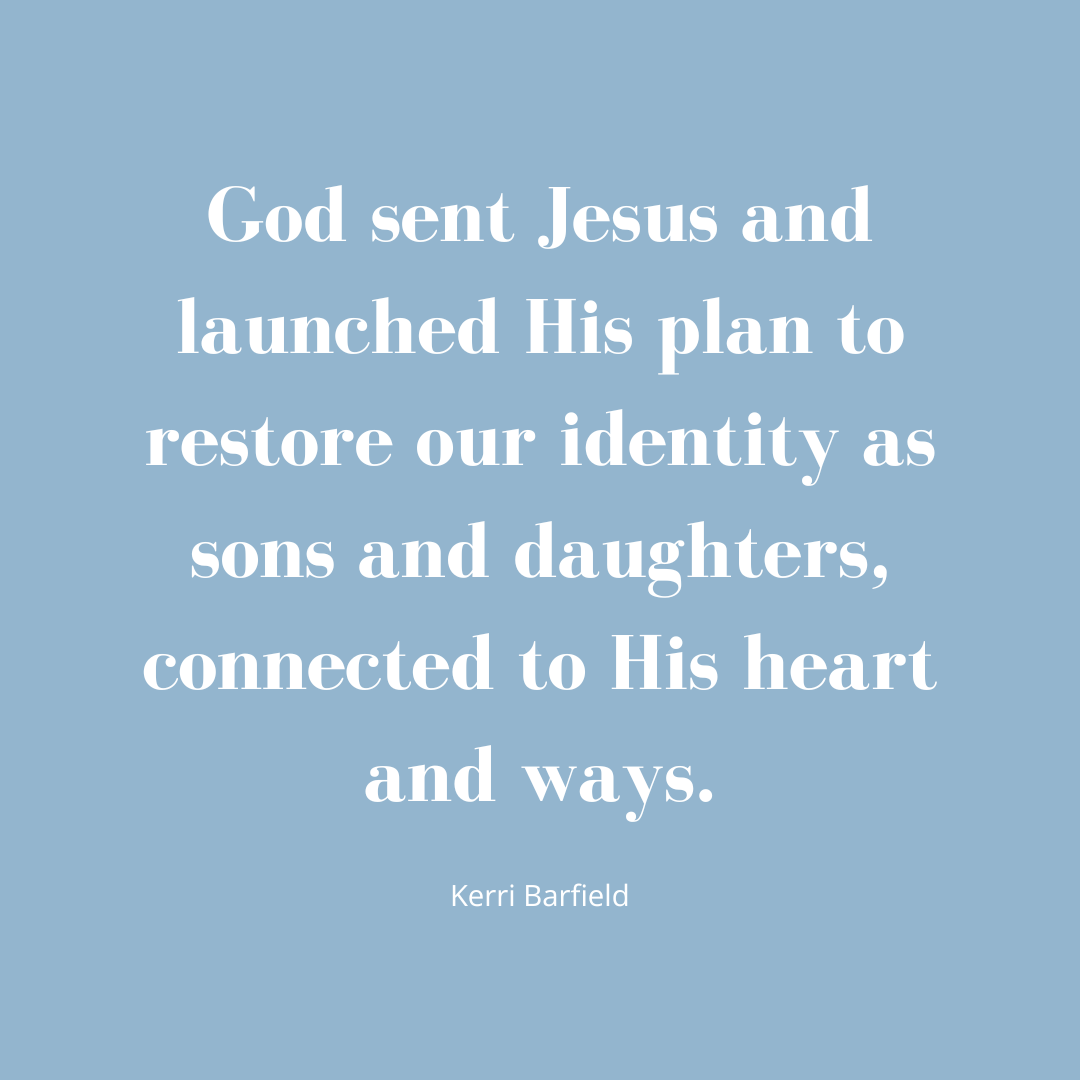

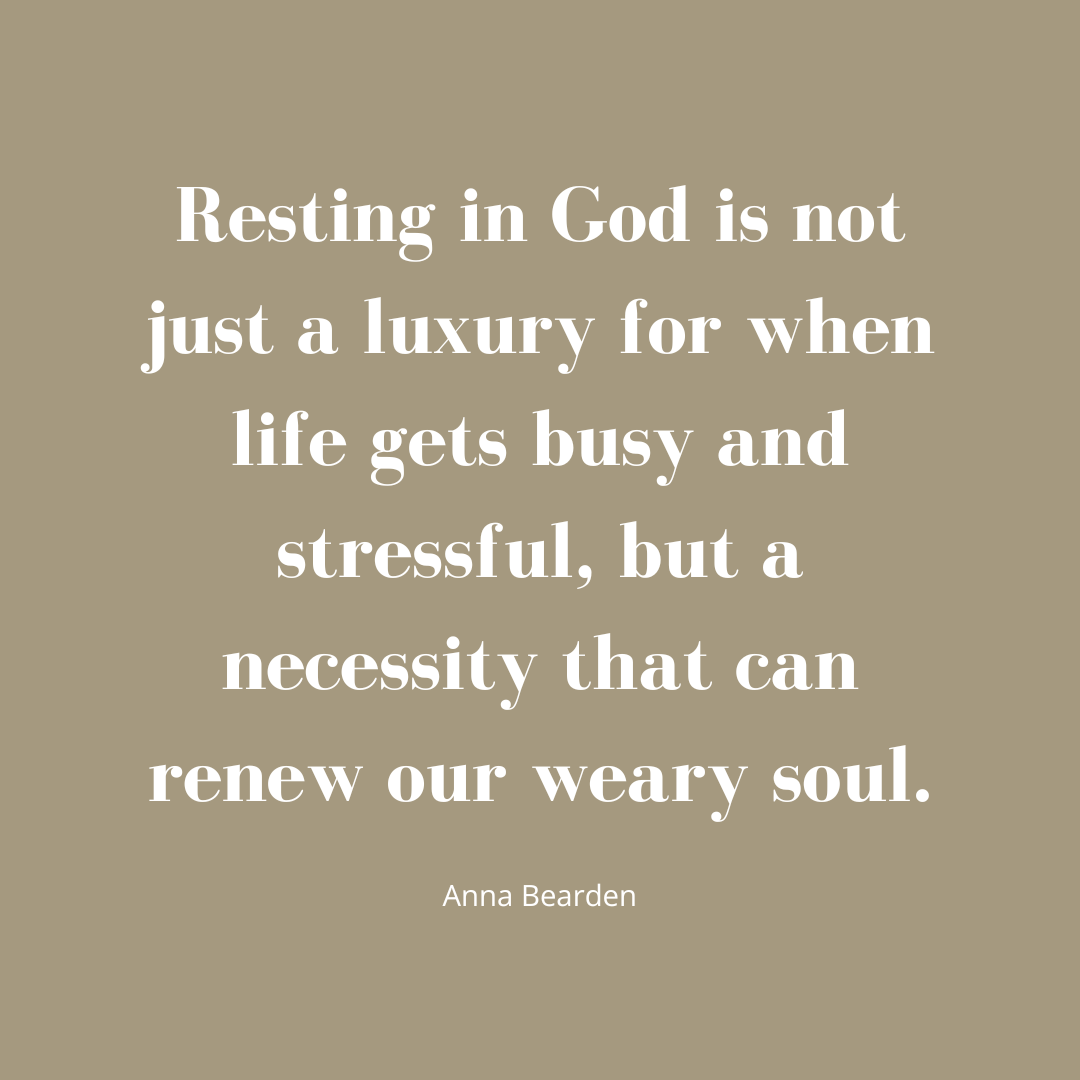

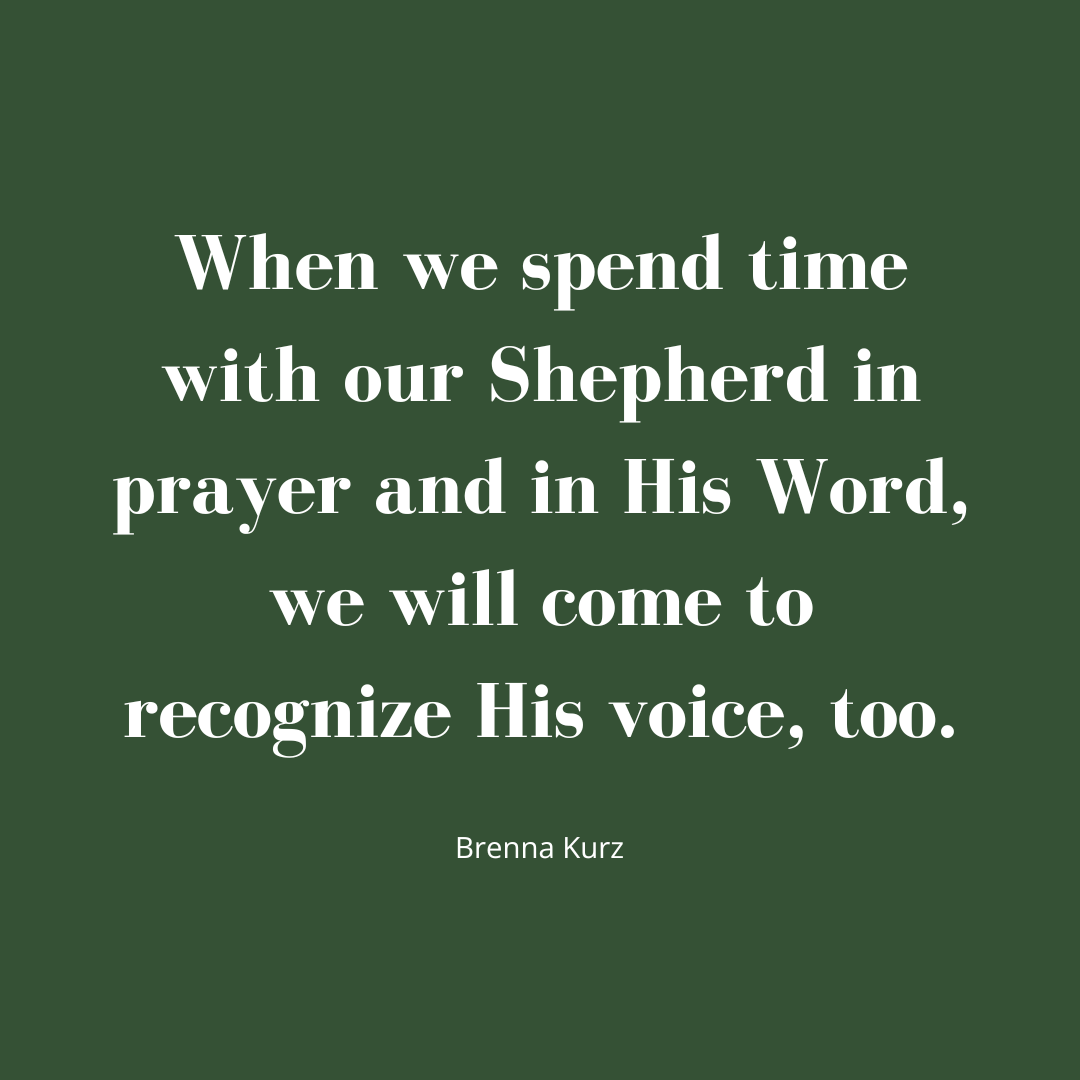








 RSS Feed
RSS Feed